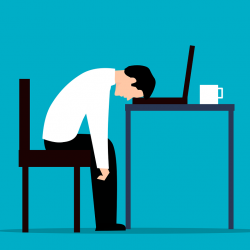To provide the best experiences, we use technologies like cookies to store and/or access device information. Consenting to these technologies will allow us to process data such as browsing behaviour or unique IDs on this site. Not consenting or withdrawing consent, may adversely affect certain features and functions.
The technical storage or access is strictly necessary for the legitimate purpose of enabling the use of a specific service explicitly requested by the subscriber or user, or for the sole purpose of carrying out the transmission of a communication over an electronic communications network.
The technical storage or access is necessary for the legitimate purpose of storing preferences that are not requested by the subscriber or user.
The technical storage or access that is used exclusively for statistical purposes.
The technical storage or access that is used exclusively for anonymous statistical purposes. Without a subpoena, voluntary compliance on the part of your Internet Service Provider, or additional records from a third party, information stored or retrieved for this purpose alone cannot usually be used to identify you.
The technical storage or access is required to create user profiles to send advertising, or to track the user on a website or across several websites for similar marketing purposes.
 Lucid and Vitreous World, have launched the results of new research that surveyed individuals across the UK to analyse employee sentiment and the impact of flexible work as a direct result of the pandemic. (more…)
Lucid and Vitreous World, have launched the results of new research that surveyed individuals across the UK to analyse employee sentiment and the impact of flexible work as a direct result of the pandemic. (more…)








 Millions of British workers face uncertainty as a snapshot of the nation’s work practices claims that one in five employees are unsure whether they’ll be expected to work remotely, onsite, or a mix of both in the future. Without having a clear decision from their employer, some employees are unsure about their organisations’ return-to-office plans.
Millions of British workers face uncertainty as a snapshot of the nation’s work practices claims that one in five employees are unsure whether they’ll be expected to work remotely, onsite, or a mix of both in the future. Without having a clear decision from their employer, some employees are unsure about their organisations’ return-to-office plans. 
 Over a third (37 percent) of Brits say they have felt more stressed since the lifting of lockdown restrictions in July, and one in five (21 percent) still aren’t ready to get back to normal life – and that includes the office – claims a new
Over a third (37 percent) of Brits say they have felt more stressed since the lifting of lockdown restrictions in July, and one in five (21 percent) still aren’t ready to get back to normal life – and that includes the office – claims a new 








 Predicting behaviours in the commercial property market is never an easy thing, yet we know that the pandemic has drastically altered this market. Whilst some players have advocated ‘the end is nigh’ for all office space, research shows a different picture emerging – namely the office space as we know it is evolving into something different. The impact of prolonged uncertainty has fuelled change. However, there are other forces at work shaping a brighter and more varied future for office space.
Predicting behaviours in the commercial property market is never an easy thing, yet we know that the pandemic has drastically altered this market. Whilst some players have advocated ‘the end is nigh’ for all office space, research shows a different picture emerging – namely the office space as we know it is evolving into something different. The impact of prolonged uncertainty has fuelled change. However, there are other forces at work shaping a brighter and more varied future for office space. 
 New ways of working will boost UK productivity and increase employment levels in cities outside of London, according to a new report from KPMG. And as businesses in some sectors prepare for employees to spend two to three days a week working from home on a permanent basis, demand for office space could see capacity potentially increase by as much as 40 percent, according to a new KPMG report,
New ways of working will boost UK productivity and increase employment levels in cities outside of London, according to a new report from KPMG. And as businesses in some sectors prepare for employees to spend two to three days a week working from home on a permanent basis, demand for office space could see capacity potentially increase by as much as 40 percent, according to a new KPMG report, 
 A new study, commissioned by
A new study, commissioned by 










October 22, 2021
Employee experience is more important than ever
by Lizzie Rolley • Comment, Wellbeing, Working culture, Workplace